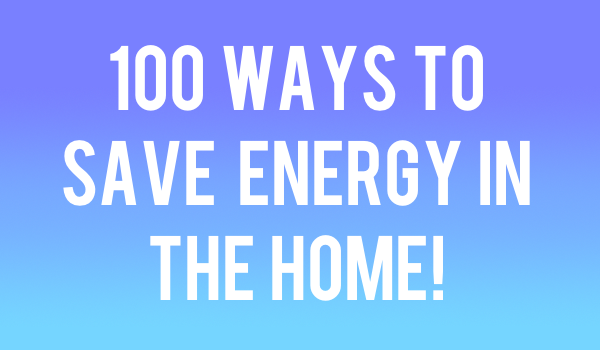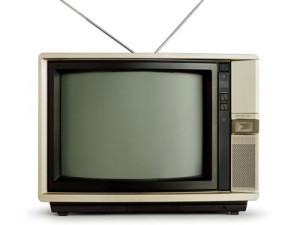
The ‘cost of living crisis’ is the expected to be most challenging event for families up and down the country as general price increases have now been coupled with exponential rises in energy costs.
With these tough times ahead we sat down TGA HQ the other day and thought long and hard how we can help the reader save on energy costs. The result: a 100 ways to save energy in the home! As far as we can tell, there are a few tips that seem to get recycled by every website and media outlet out there – so we decided to amalgamate them all together and create an exhaustive list.
In 2022 we’ve all experienced rapid increasing energy bills (80% rise in Oct 2022), and 2023 could be no exception – so this list should hopefully prevent you from paying out more in energy costs that you need to!
Have a read and let us know in the comments below if there are any other ways that we might have missed…
- Install insulation in the loft, this will help prevent heat escaping up through the top of your property (ideally 100% natural sheep wool).
- Install cavity wall insulation – again this is a cheap option (most energy companies offer it for free) and will help minimise heat loss through the walls of your home.
- Install a heat pump and take advantage of the RHI. If you boiler has packed up, try installing a renewable heating technology and the best bit, you get paid to produce the hot water by the government!
- Draught proof around your front door (including the letter box) to help prevent cold air rushing into your home during the winter months.
- Shower – don’t bath! Baths tend to use a huge amount of hot water compared to a shower.
- Limit the length of the aforementioned shower. We know that, sometimes, nothing beats a nice long shower; but if you can try and keep these extended stays to a minimum you are going to save energy and reduce your bills (especially if you have a water meter).
- Shut windows during the winter. It may seem a bit obvious, but if the heating is on and you are letting all the hot air escape straight out of the window, then you are wasting energy and money!
- Install heavy curtains and make sure you close them at night. This again acts as a barrier to prevent heat loss out of the home.
- Install chimney balloons or a chimney sheep – both work in the same way to stop cold draughts come down the chimney, just remember they are up there before you relight the fire!
- If you have a regular boiler, turn down the thermostat on the hot water tank. This will mean the water in the tank never gets too warm. There is little point producing scalding hot water in the tank if you then simply add cold water in your mixer shower or bath to get it to a nice comfortable temperature. Making sure it is heated to the right temperature (and stored at the right temperature too) in your hot water tank is a great way to save on your heating bill and this is done by turning down the thermostat on the tank.
- Insulate your hot water cylinder . If you have a hot water tank in your house, it is worth a trip down to the local DIY store to pick up a jacket to help limit heat loss.
- Install double or triple glazing – it is never that cheap to do, but it will improve the thermal comfort of your home and should save you a little bit on your energy bills every year.

- Install magnetic secondary glazing – this is cheaper to do than number 12, and is more effective in terms of noise reduction.
- Turn down the roomstat by a couple of degrees. 19 degrees is about the norm here in the UK. Some people do like their homes a bit warmer, but as a rule of thumb, for every degree you turn your thermostat down you will save about £50.
- Open windows instead of relying on an extractor fan – no electricity used, no cost!
- Set your fridge/freezer to a higher temperature so they don’t need to work so hard. If you are defrosting food, always defrost it in the fridge because then the frozen food will keep the fridge cooler!
- Replace your lighting with low energy LED lights, they not only use 90% less energy but they also last 10-20 times longer so you will hardly ever have to replace them.
- Take advantage of solar gain in the winter to keep your house warm (keep curtains open in the daytime to maximise direct light entering the house).
- Only buy A-rated appliances, or above. They are marginally more expensive, but in most cases the additional energy savings will cover the additional expense in just a year or two.
- Install motion detector lights. There is no point leaving lights on if no-one is there to benefit from them. Motion detector lights are also a good deterrent against unwanted visitors.
- Use microwaves to reheat food as opposed to the oven – they heat up the food far quicker so are therefore more efficient.
- Repair refrigerator door seals. If warm air is seeping into the fridge then it will need to work harder (and use more electricity in the process) to keep it at the set temperature.
- Fill your freezer up. It uses less energy since the frozen food won’t warm up when the door is opened. If the freezer is empty, then all the space will fill up with warm air when the door is opened, which the freezer needs to work hard to cool down when the door is shut again.
- Turn lights off when you leave the room. This is one that parents (who tend to pay the energy bills) forever tell their kids. It is definitely worth it, especially if you haven’t made the swap to LED lights (see no.17!)
- Avoid using the dryer – hang clothes outside when you can. Dryers have big motors to spin the clothes and heaters to help the drying process which means they are expensive bits of kit to run. If you can hang clothes outside you can normally get away without ironing them too because the wind does the work for you!
- If you do use a dryer, clean the lint filter after every couple of uses. This will help it run more efficiently, helping to save electricity.
- Try and maximise the use of the BBQ during the summer months – and use waste wood! This means no electricity or gas used in the home. Everyone much prefers BBQ food anyway!!
- Only boil as much water as you need – i.e. don’t boil a kettle full of water for one cup of tea.
- Always use your washing machine on the lowest temperature settings – bio washing powder contains enzymes that are specifically chosen because they work at this temperature. If you crank the temperature up then it can actually make the washing powder ineffective.
- Install tap aerators. These ‘inject’ air into the water as it comes out the tap, so while it looks like there is no impact on the flow rate, a fraction of the water is used. These are especially useful if you are on a water meter.
- Install a low flow shower head – same principle as number 30!
- If your washing machine doesn’t have a half load setting – make sure you fill it with clothes
- Plug things into a power strip and turn that off at the plug when not in use – to avoid leaving things in standby. Even though when things are in standby they use less energy, they do still use some! Turning everything off at the plug ensures that NO electricity is used.
- Don’t leave your computer in standby – turn it off at the end of each day
- Put Radflek (or other radiator reflectors) behind the radiators to reflect heat back into the room, the helps the radiators warm the room more effectively. GreenAge readers can get an exclusive 20% discount using offer code TGA20.
- Unplug your phone from the charger (and the charger from the wall) when your phone is fully charged
- Install a programmable thermostat – there is no point heating your home if you aren’t there. Better still, install a smart thermostat which you can control from outside your home. This will allow you to turn the heating on and off from wherever you are in the world, so if you suddenly realise you left the heating on while sitting on the sun bed in the Costa Del Sol you can turn it off to minimise wastage.
- Try to avoid electric heating – electricity is 4x the price of gas. If you don’t have a choice opt for infrared or if funds allow, try and push for a heat pump – these two types of electric heating are by far the most efficient.
- If you have tiled floors that get cold in the winter, cover the floor with a rug so your toes are kept nice and toasty warm!
- Air conditioning in some case might be necessary, but strategically placing trees can cause shading to help provide some comfort from direct sunlight.
- Install a new energy saving condensing boiler. If you have an old boiler in your house, it might be time to swap it to a new condensing version. This will recycle the heat in the waste exhaust gases making it run far more efficiently.
- If you can access the back of the refrigerator – try and vacuum the coils once a year to ensure the fridge runs at maximum efficiency
- Put lids on pots and pans to reduce cooking times.
- Try and match the size of the burner to the right pot or pan – putting a small pan on a huge burner or electric hob will just waste electricity.
- Don’t position the thermostat near the front door – any cold air entering the home will manipulate the temperature being recorded near the thermostat, forcing the boiler to fire up unnecessarily.
- Decorate with pale colours – soft tones reflect more light and therefore you should get away with using lower wattage bulbs and still achieve the same levels of illumination
- Keep the garage door shut at all times – normally garages in some way share a party wall / floor with the main house and therefore the warmer they are, the less heat will escape from the rooms adjacent to them
- Unplug any device that is not being used.
- Don’t oversize your appliances – a massive American style fridge is (normally!) unnecessary for a household of 1.
- Charge things at night if you are on an Economy 7 tariff, the night time tariff tends to be half the price of the day time tariff.
- Install insulation in the floor – this is not the cheapest thing to do, but if done when replacing the floor anyway then it is certainly worth doing. If the floor can be accessed from underneath, you can attach net ‘hammock’s underneath the joists which can be filled with insulation. Expect to save about 5-10% on your energy bills if you can insulate the entire floor.
- Make sure you use the dishwasher – these tend to use far less water than washing by hand – but be sure to put them on ECO mode to help minimise the energy used in the process (they use less water and heat it up to a slightly lower temperature).
- Turn your tap off while brushing your teeth – this is only really going to save on your water bills if you are metered, but is still good practise!
- Fill the sink with hot water before you shave – the same as above here although people tend to shave using hot water, so using a sink full rather than a running tap is better because you will use significantly less hot water.
- Watch less television – read a book instead! Reading a book is proven to be more relaxing than watching TV and a book doesn’t require electricity to run!

- Open a window instead of firing up the air conditioning unit – these are real energy guzzlers, so if do have the option of opening a window then you are going to save significantly on your electricity bills.
- Use glass and ceramic dishes if cooking in the oven, they hold heat better and mean that you can use a slightly lower temperature to cook food.
- Don’t open the oven to look at the food inside – peep through the window to help prevent the expensive hot air inside escaping.
- Avoid opening the fridge or freezer to browse – every time you do, the appliance will need to fire up to cool down the air again.
- Recycle your cardboard and old newspapers into logs using the ‘Logmaker’ – if you don’t have a fire to burn your paper logs on, then make sure you recycle paper rather than throwing it in the bin.
- Avoid drying clothes directly on your radiators as it lowers the room temperature, which means the boiler will need to work harder.
- Allow cooked food to cool before putting it in the fridge / freezer, otherwise the fridge / freezer will have to work harder to cool it down.
- If there are rooms that you rarely use – ensure that thermostatic valves are installed on the radiators – since these can be set to zero if the room is not in use so the space is not unnecessarily heated.
- Avoid blocking radiators with furniture – allowing convection currents to flow around the room as the hot air will be felt across the room quicker.
- Plant a tree in a south-facing garden to lower solar gain during the summer – the leaves should limit the amount of direct sunlight hitting your home (and in particular windows). This will limit the amount of cooling you need to do in your home e.g. air conditioning or a fan.
- If you have a ceiling fan, it should blow down in the winter and up in the summer, so you will need to turn the blades around to achieve this.
- On the loft hatch, ensure you attach insulation to the top of it, and then create a seal with draught proofing around the perimeter. So many people spend a huge amount insulating their lofts, but neglect the loft hatch completely meaning lots of heat escapes up through the hatch. If you are looking for a really simple way to save energy in the home, then ensuring the loft hatch is adequately insulated and draught proofed is a great way to get started!
- Keep curtains and blinds closed at night to keep cold air out – if you have especially cold rooms, you can get thick curtain linings to help increase their energy saving ability even further.
- Install solid wall insulation
- Use microwaves to cook food – they use only 20% of the energy required to run a full size oven.
- Recharge batteries instead of buying throw away ones.
- Recycle whatever you can – think plastic, paper and even food stuff (in a composter).
- Get a gas safe engineer to come and inspect your heating system once a year to make sure it is working at maximum efficiency. It is worth doing this just before the winter months because then hopefully they will be able to spot any potential issues before they actually materialise.
- Move in with your partner – save on heating and electricity!
- Carpooling saves fuel – find people at work who live close to you and take it in turns driving to work, someone to chat to on the way and you halve your fuel bill
- Holiday in Britain if possible (surfing in Cornwall is excellent!). As you might expect as we write this it is absolutely bucketing outside our office, but honestly the UK is a nice holiday destination just remember to take your raincoat!
- Grow your own fruit and veg in your garden – it not only saves you money, but you can save on fuel since you don’t need to go down to the shops so often. Also (and this is from first hand experience) home grown produce tastes better!
- Take a mug into work instead of using a new polystyrene cup each time.
- Although price comparison sites like USwitch became a bit irrelevant in 2022, do still follow updates and compare energy costs from time-to-time. Should energy costs rapidly decrease in 2023 and 2024, then cheaper energy tariffs in theory should come back.
- Dim your smart phone, it will use less energy so you won’t need to charge it so frequently (especially important if you have an iPhone!!)
- Likewise, turn off 3G/4G /Bluetooth where possible since they use more energy in this mode – it will save you money on charging
- When you go on holiday, turn all plugs off unless absolutely necessary – you don’t use a radio alarm if you aren’t at home!
- If you store things in your loft, make sure it doesn’t compress the insulation since it will lose some of its thermal insulating properties. Use loft lifters to raise the height of the joists – this allows you to make a solid storage platform in the loft while still allowing you to install the 300mm of insulation to maximise the energy savings.
- Inflate your tires car tyres – this lowers resistance on the road and saves on fuel.
- If the shops are a 10 minute walk away, don’t use the car!
- Fix leaking taps or toilets.
- Don’t store things permanently in the boot of the car – the extra weight needs to be shifted and this requires extra fuel
- Make sure the wireless thermostat is not above another a heating source like a wood burner or radiator – since it will give a false representation of the temperature. Likewise, if it is by a window or the front door, every time that is opened during the winter it will basically cool the air temperature down in the immediate vicinity of the thermostat. The thermostat will take this as a sign that the house is cold and will therefore instruct the boiler to fire up and for the heating to come on.
- Install a combi boiler instead of a regular boiler – combi boilers don’t require you to store hot water in hot water tanks and also you don’t need pumps to power showers
- Flush the toilet less often! A bit gross, but ‘if it’s yellow, let it mellow’. Not to the extent that your toilet smells though!
- Print on both sides of paper.
- Fill an old bottle up with water and store it in the fridge rather than running the tap cold every time you want a glass of water.
- Water the lawn first thing in the morning when temperature and wind speed are at the lowest – this will slow down evaporation, meaning less water will go further.
- Regularly defrost your freezer – ice building up in the freezer reduces its effectiveness.
- Leave food out to thaw before trying to cook it – this means less energy is required to cook it.
- Shower at work – let them pick up the bill! A naughty one, but useful especially if you get sweaty cycling to work or you go to the gym in the mornings.
- Get a thicker duvet for the winter
- Put on an extra jumper!
- Get a LCD or LED TV, they are more efficient than plasmas and way more efficient that old CRTs
- Hire an environmental consultant to get a tailor made view of where to achieve energy savings in your property.
If you can think of any other ways to save energy in the home – feel free to comment below!














Wow! That is an exhaustive list of energy saving tips! Good work guys. Completely agree with number 98 – this is often overlooked it seems!
kys
kys
yaaaaaaaaaaaaaaaaaaaaaaay
Yep – that took a bit of time to be fair! We were going to try for 365 things, but honestly, it starts getting really tough around 85 – maybe next year!
I don’t think you can.
Well done! This is really useful.
Idiot
What do you mean
Shower at work – let them pick up the bill!
This is a bit of a cheeky one! Obviously this doesn’t reduce overall energy usage, but it lowers your own bills so probably worth doing 🙂
This is such a lovely idea – well done all involved! I shall try to absorb a few of these into my daily life! Thanks as always – Deidre
Haha – thanks Gill / Deidre. If you have any other energy saving tips that we may of missed from our list please add them down here so they can be shared with our other users.
How about stay in bed longer with your parter haha. Worth a shot.
ok your are sus
By
Very good list.
Spelling mistake in your number 76 – should be Britain!
Thanks David – updated!
No repetition – good effort! I imagine as your were nearing 100 that became pretty difficult! Although I do agree with Heston above, longer in bed with the misus always seems to do the trick for me hahaha
Great post!
No 21 & 70 are the same thing?
Number 72: I say that recycling should be the last option. Reduce, reuse, repair, rehome first
Some more:
Grow a beard!
Eat more salads.
Use a pressure cooker and induction hobs.
Good spot – 20 and 72 are the same – we shall have to rename the blog! 99 ways to save energy in the home!
Also cook in large batches and freeze portions for microwaving later. You don’t (I hope) iron a shirt as you need — you shouldn’t cook in this way either!
I like this article as I really shows how many ways there are to save energy at home, some of them many of us probably do not realize. It seems like many people do not understand how much the energy they use at home impacts their budget and the environment. Sometimes making simple investments like buying a led bulb instead of a traditional one, buying an energy saving washing machine, dishwasher or a kettle makes a significant diference in our budget. Switchin off non-essential items and not using the clothes drier when there is sunshine out is the absolute minimum of tings responsible individuals can do.
Energy can be saved by using dual flush cistern and save £20/person/year on the water meter. It’s a free DIY to convert a single 12l flush to an optional 6l flush by fixing a rubber hose to the siphon with the height of the free end controlled by the handle.
Or in builted dual flush cistern, remove internally the button from full flush, and leave only the half flush button, i did that, and externally left both buttons, but only the half Works 🙂
Best to water your lawns/plants last thing at night, this allows the moisture to soak in feeding the roots all night and reduces the risk of scorching the leaves. Also in biodynamics they believes that at night the earth breaths in and during the day breaths out. Which sort of makes sense when you think about it.
I remember a tip to put a filled water bottle in the toilet tank. For example, a full 500 ml. bottle will have the toilet buffer 500ml water less, saving 1 litre every two full flushes. Simple trick nicely adds up.
Use timers on exhaust fans in bathrooms. This saves electricity and reduces the risk of fire from an overheating fan motor.
Turn off the pilot light in your HVAC or boiler during warm/hot months. Not recommended is you get domestic hot water from your boiler. 😉 BTW if you can’t seem to find a pilot light, you probably do not have one.
Back in the day, perhaps during a drought, “save water, shower with a friend” had some currency here in the colonies.
Low flow faucet aerators for bathroom/lav use. I recommend 1 GPM/3.8LPM. I find the 1/2 GPM to be annoyingly slow while waiting for hot water.
Don’t let the heat from radiators go up behind your curtains. Store electric oil filled radiators somewhere warm so that they heat up quicker. Proper coffee and some teas like lower temperature water, race the kettle to switch it off or get one that heats to 70C. Check how many watts all of your AV off that one socket is using when on standby. Charge your mobile phone and cycle lights up at work. Convince everyone in the family to sport short hair: quicker showers and no hair dryers, straighteners etc.
For the really sad:
1) Refill the kettle immediately after use (with the minimum amount of water for next brew). That way waste heat in the kettle will pre-heat the cold water from the tap.
2) If you have a hot water tank / thermostat / timer then set the water to come on about an hour before use. That way the water in the tank will be it at its hottest when needed, the water thermostat may be turned down and a hot tank won’t be left to cool down overnight. (This needs a bit of fettling to get the settings right).
3) With conventional boiler + hot water tank set the boiler thermostat about 15C above the water tank thermostat. Any less and there is insufficient difference to heat the water. Any more and the water at the top of the water tank will be too hot. We set tank at 47C and boiler at 62C.
With respect to 33 and 55 I think 15 minutes of (unwatched) TV uses similar energy as a day on standby (100W on vs 1W at standby)
If you’re going to use the oven, cook a few meals at the same time to get the most out of having your oven on. It is very simple, but every Sunday we cook most of the meals for the week. Not only does it save time when you get home from work in the evening but also we save energy! Can also cook in bulk – i.e. rice to last the week and then frdige everything and use as required.
We also take our clothes out of the dryer before they’re completely dry (we do try and use washing line when we can!) but by taking them out they will iron much quicker and you use less energy on your drier.
Also number 17 is an absolute no brainer. If you have any light bulbs in the home 100% swap them for energy saving lights! This is a great list of energy saving tips by the way, must have been a long team meeting to come up with them!!
I don’t understand how energy prices in the Uk are still so high. The price of oil is under $30 dollars yet there have been no price drops. Surely that would be the biggest way to save energy at home if the energy companies passed on these savings. Instead I bet when oil prices do go up they will continue to increase prices and neglect to mention they are at the lowest levels for over a decade. Honestly, DECC go on about trying to help home owners help lower energy bills. If you ever speak to the team at energy saving trust you will know the whole bloody lot of them should do a different job, maybe testing grenades?!
Very impressed with this list of energy saving tips! I think it covers everything. Couldn’t think of any others.
I reckon I do about half of these energy saving tips – but certainly a few I hadn’t thought of. Impressed you manage to come up 100 though! Does 91 actually save energy though? Surely it just saves printer ink?!
Hi Laura, fair point! You got us! Maybe we should rename 99 ways to save energy in your home, but it isn’t easy to come up with news ones when you are 99 down!!
You’ll use less paper which means less energy needed when manufacturing the paper!
What a fantastic list of energy saving ideas!
This is the most amazing list! Thanks for sharing. We are currently teaching the kids in our class about energy saving and this is a great resource to start with. It is very simple, but lots of great ideas.
Thanks LeslieG, glad it helped! Good work teaching your kids about energy saving – will serve them well going forward! If you need specific resources for schools we also have them available – these are designed to make learning fun and engaging, but with some useful advice thrown in too!
Yay
Get wooden floor and do not spend money when hoovering
Get non electrical phone
Heat pumps can help you save up to 70% of your energy heating costs!
What a great extensive list! I’ll definitely be implementing some of these in my place 🙂 We also have a blog post on saving energy if you want to check it out!
Thanks guys for this info ☺☺☺😊😊👍👍☝☝
🙂🙂🙂🙂🙂🙂🙂🙂🙂🙂🙂🙂🙂🙂🙂🙂🙂🙂🙂🙂v
Good
JUST A FEW, VERY EFFECTIVE WAYS IVE SAVED MONEY AT HOME TO ADD TO YOUR LIST OF WAYS TO SAVE ENERGY .
1 I INSTALLED A WOOD BURNER 20 YEARS AGO, VERTUALLY NO MAINTENECE APART FROM CHIMINEY SWEPT ONCE A YEAR, ABOUT £35-£40, ROAP SEAL PERHAPS EVERY 10 YEARS, A COUPLE OF QUID, A VERTIAL ENDLESS SUPPLY OF WOOD (AS LONG AS YOU ARE PREPARED TO LOOKOUT FOR, CHOP STACK AND SEASON) IVE MADE A HYDRAULIC LOG SPLITTER OUT OF A STEEL FRAME AND BOTTLE JACK AND I USE AN ELECTRIC CHAINSAW , I MIGHT USE A FEW KW CUTTING THE WOOD BUT I END UP WITH TENS OF KWS OF FUEL.
2 ON TOP OF MY WOOD BURNER I HAVE 2 SOMETIMES 3 WISTLE KETTLES, A 1.5L SILVER ONE FOR DRINKING WATER, A 2L RED ONE WHICH I FILL UP WITH RAIN WATER FROM A WATER BUTT FOR WASHING UP AND SOMETIMES, IF THERES SPACE, MY INDUCTION KETTLE.
3 I HAVE A THURMOS FLASK NEXT TO MY INDUCTION KETTLE IN THE KITCHEN, WHEN I BOIL THE KETTLE I ALWAYS FILL THE FLASK, SO IF ANYONE ELSE WANTS HOT WATER FOR THE NEXT 5 OR 6 HOURS ITS THERE! IF NOT THEN THE HOT WATER GOES BACK INTO THE KETTLE FOR THE NEXT BOIL.
4 I HAD SOLAR PANELS FITTED 6 YEARS AGO AND HAVE EXPORTED, THROUGH FIT SCHEME £4600 WORTH OF ELECTRICITY TO DATE AND ALSO HAVE A DEVICE COSTING ABOUT £150 -£400 TO FIT WHICH IS CONNECTED TO MY IMERSSION HEATER AND THAT HAS DIRECTED, TO DATE 1.1MW OF ELECTRICITY. IT WORKS BY DETECTING WHEN THER IS ELECTRICITY IS AVALABLE FROM JUST A COUPLE OF WATTS TO 300, SO DURING THE DAYTIME, EVEN ON DULL DAYS, ENERGY IS GOING INTO MY HOT WATER UNTIL IT REACHES ITS MAX TEMP THEN BACK TO THE GRID OR HOUSE.
5 FINALLY I HAVE AN AIR SAUCE HEAT PUMP, WHICH HAS REPLACED A CONDENCING GAS BOILER, ONLY 90% EFFICIENT, THE ASHP IS ABOUT 300%! EXPENSIVE TO BUY THOUGH, BUT WITH THE RE-NEWABLE HEAT INSENTIVE SCHEME (RHI) COST ABOUT THE SAME AS A QUALITY CONDENCING BOILER. AND ALSO I ASKED FOR MY GAS METER TO BE REMOVED SO I DON’T HAVE TO PAY THE STANDING CHARGE, THIS WAS DONE FOR FREE! ( ALTHOUGH YOU HAVE TO BE SURE THAT YOU ARE NOT GOING BACK TO GAS! FOR ME IT WAS EASY..NO MORE GAS BILLS EVER!) . I HOPE THIS IS USFUL.
why so many caps?
nice
e
GEEK
These are really effective tips in order to reduce energy bills. Good job guys,
I have covered the same topic. If you would like to read you can follow this url
https://architecturesideas.com/2018/10/31/5-easy-tips-how-to-save-the-electricity-at-home/
Nice Post!
Granite Countertops in new jersey
Bill nye yo mom a guy
bill nye the racist guy!!!!!!!!!!!!!!!!!!!!!!!!!!!!!!!!!!!!!!!!!!!!!!!!!!
bill nye the racist guy!!!!!!!!!!!!!!!!!!!!!!
bill nye the racist guy
wow thanks for the advise i will make sure i do that.
We all should do our bit to conserve energy. I am so much with point 17. Upgrading your lighting equipment to LED can reduce your electricity bill by 70%. It’s a big step toward energy conversation.
When go to bed at night turn off the tv, cable appliance and wireless, from standby, really turn off. it’s about 16hours of saving in standby every day of the year, we go to bed about 8 hours and in the morning we leave to work and school, there is no need for all those appliances to be in standby mode.
Marked your tips. You should always unplug your appliances when they are not in use. Even if they are turned off, they still consume electricity, which leads to higher electricity bills.
We didn’t know there are 100 ways to save energy. It’s a valuable post. Thanks for making an effort to create this. These types of write ups need to be promoted on good platforms for social awareness.
It’s great that you did efforts to collect these tips for people who are willing to save energy. These tips are more than enough to start with. I also want to add that switching to LEDs won’t only save your energy and money, but it will also benefit the environment, as they produce almost 0% emission.
this was good for school word
Great article
Oh my goodness! This is such a well thought out list! must have taken you ages!!
Beautiful list!
hey do u no joe
JOE MAMA
HAHAHAHAHAHA
yes joe mama is bad hahahahahahaha
Your blog was filled with interesting ideas! I must totally agree with these awesome and effective tips. I surely saved a lot of money.
Thank you for creating such a detailed list of ways to reduce energy consumption in the home! A welcome change from the same odd few you see around. If you are going to take advantage of the RHI, and if you don’t already have a valid Energy Performance Certificate (EPC) you may need to get one as part of your application. They are also necessary if you want to find out detailed and specific recommendations for your property on the most economically efficient way to make improvements. This is done by taking the raw data from the EPC survey and then running simulations to produce a Minimum Energy Efficiency Standards (MEES) report which is completed by an industry professional. This can help you to decide which measures will be the most productive for your home.
Wow, I see you have a really extensive list of things we can do to improve our energy efficiency, But I think we should strive to make our home as energy efficient as possible first, before focusing on daily habits. There are two specific funding schemes available for improving the energy efficiency of your home via OFGEM; Renewable Heat Incentive (RHI) and Energy Company Obligation (ECO). If you’re planning to get funding for improvements through either of these schemes and if you don’t already have a valid Energy Performance Certificate (EPC) you may need to get one as part of your application. They are also necessary if you want to find out detailed and specific recommendations for your property on the most economically efficient way to make improvements. This is done by taking the raw data from the EPC survey and then running simulations to produce a Minimum Energy Efficiency Standards (MEES) report which is completed by an industry professional. This can help you to decide which measures will be the most productive for your home. Easy EPC
Have you considered that if we did not move the time by 1 hour then we would not get early darker evenings and darker mornings so would not have to put our lights on so early. With this in mind thousands of people would not use so much energy. Not so goid for the profits of the energy companies but a large step for the environment. Just a thought🤔
So many new things I have learned reading this post about enery-efficiency and energy-saving. Amazing post. Glad I found it. Thank you so much.
That is one of the exhaustive list to save on energy in home. Addition to that one can also install home energy monitors like Sense, Ohm Assistant, Neurio, Curb, Efergy, Wattvision. One can also install Dimmer Switches, these lets you control the brightness of the light. . Installing these switches at home helps to dim light and save on electricity consumption.
books-top (Law) Free Ebook – books-top (Psychology) Free Ebook, books-top (Cookbooks, Food & Wine) Free Ebook
When cooking I:e vedgies, meat for stews casseroles etc cut smaller to reduce cooking time.
Love all these savings, most l already use and know about.
One l didn’t know insulate the loft lid, good idea, next job to do.
Will from now on turn off all plugs with chargers and clocks on holiday.
Huge thanks
Get a thermos flask. Boil a kettle once for several cups of tea. Use the flask. No need to keep boiling water for a cuppa
Years ago I washed my hair daily ,using water,dryer ,styler and many products .now I wash it once a week and put it up in a scrunchy.i have crazy hair,a mop in fact .now it’s even crazier and I’m loving the look
Buy a manual carpet sweeper and a dustpan and brush instead of always hoovering. No electric and you get exercise. If arthritic hands wrap the handles in pipe lagging and buy a long-handled dustpan and brush.
Soak clothes washing in gas-heated water (if you have gas of course) – in sink or bucket (cheaper and can get up to 50degrees quicker). than electric heating in the washing machine). Occasionally agitate with hands or rolling pin, leave up to an hour. Rinse twice in sink (less water needed than a machine). Spin in washing machine or buy a gravity spin-dryer (goes twice the speed – less condensation in your home).
Use a bucket of (preferably gas) heated water instead of a shower.
I read the RHI finished now to new customers on the gov site.
item 10 when turning down you boiler temp you should no go so low that legionnaires disease can grow. I think the minium is now 55 degrees but it may be 60.
item 30 is good but the real saving is in the energy saved in not heating and using as much hot water.
fit reflective foil behind radiators
Us an electric blanket to warm you bed instead of heating the whole bedroom.
Hi – really useful list thanks. Number 3 – I thought the renewable heat incentive had closed (as of March 2022??).
If you use a smart thermostat, there are some thing you should know.
It’s advisable to not mess with your thermostat too extremely (more than 5-8 degrees lower) or too often. Try not to crank it up or down too frequently, as doing so can cause stress on the heating system’s internal coils and pipe work. This can make your system wear out very quickly. Contact a professional HVAC technician and he will tell you how to use the thermostat effectively.
Great article you shared, Thanks for sharing such type of precious article.
Sresc4cf
Thanks im in year 4 for school
Amazing list. Thank you!